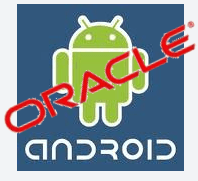| Oracle V Google Android Case Settled |
| Written by Mike James | |||
| Monday, 05 April 2021 | |||
|
At long last the 10 year case between Oracle and Google over the copyright or otherwise of the APIs used in Android is settled, the SCOTUS verdict is in.
And we can all breath easy. In a nutshell - Android is safe and so is our ability to recast APIs to create something new. If you don't know the history then read 10 Years On: Oracle V Google Still Ongoing but essentially Oracle, caretaker of Java, decided that Google's use of the Java in Android and in particular the re-implementation of the Java API was an infringement of copyright. After an initial win for Google things got increasingly depressing for anyone wanting to trust that Android would be their in the future or wanting to implement an existing API. In particular, the Trump administration seemed to be siding with Oracle and the idea that APIs were copyrightable. To review the details over the proceedings over the past decade see the list of Related Articles below. The Supreme Court, which heard the argument on October 7, 2020, has finally ruled that: “Google’s copying of the API to reimplement a user interface, taking only what was needed to allow users to put their accrued talents to work in a new and transformative program, constituted a fair use of that material” The Supreme Court ruled in a 6-2 opinion, with one justice (Amy Coney Barrett) not taking part in the ruling. It overturned an earlier federal decision, which found that Google’s use of the API had constituted infringement. What is more SCOTUS, in its 62-page judgment, seems to have grasped some of the subtleties: "Finally, given programmers’ investment in learning the Sun Java API, to allow enforcement of Oracle’s copyright here would risk harm to the public. Given the costs and difficulties of producing alternative APIs with similar appeal to programmers, allowing enforcement here would make of the Sun Java API’s declaring code a lock limiting the future creativity of new programs. Oracle alone would hold the key." The ruling is an interesting read for any programmer, but the bottom line is that, not only is Google in the clear for its use of the Java API, we are all much better placed to re-implement any API that we care to - as long as we don't copy the inner workings. On a more parochial note, you can't help wonder if this long-running uncertainty over Android has had effects that will resonate for longer than the ruling. For example, had they been confident of this outcome would Google have embraced Kotlin so entusiastically? Would they have dropped plans for their updated Java complier? And would the Fuchsia operating system exist.
More InformationGOOGLE LLC v. ORACLE AMERICA, INC (pdf) Related ArticlesThe Fate Of Programming To Be Decided By The Supreme Cour Oracle Files Response To Google and API Copyright - We Are All Doomed Supreme Court Asks For Government Help In Oracle v Google EEF Calls For Supreme Court To Decide If APIs Copyrightable Google Asks The Supreme Court To Decide The Future Of Computing Computer Scientists Petition Supreme Court Over API Copyright Are APIs Copyrightable? Computer Scientists Urge Court To Say No Supreme Court Refuses To Reconsider API Copyright Decision Appeals Court Rules In Favor of Oracle Supreme Court Refuses To Reconsider API Copyright Decision White House Advises That APIs ARE Copyrightable Supreme Court Seeks Guidance On API Copyright Issue Android Copyright Battle Goes To Supreme Court Judge Rules Oracle's Java APIs Not Copyrightable Oracle Argues - Software Is Fiction Oracle v. Google: Jury finds No Patent Infringement The Oracle v Google Trial IProgrammer Reads the Patents Oracle v Google Judge Is A Programmer! Oracle v Google - Are Computer Languages Copyrightable? Google v Oracle Verdict In - But Future Still Unclear Oracle v. Google: Jury finds No Patent Infringement Judge Rules Oracle's Java APIs Not Copyrightable The Oracle v Google Trial IProgrammer Reads the Patents Oracle Sues Google for Android Java Use
To be informed about new articles on I Programmer, sign up for our weekly newsletter, subscribe to the RSS feed and follow us on Twitter, Facebook or Linkedin.
Comments
or email your comment to: comments@i-programmer.info
|
|||
| Last Updated ( Monday, 05 April 2021 ) |



